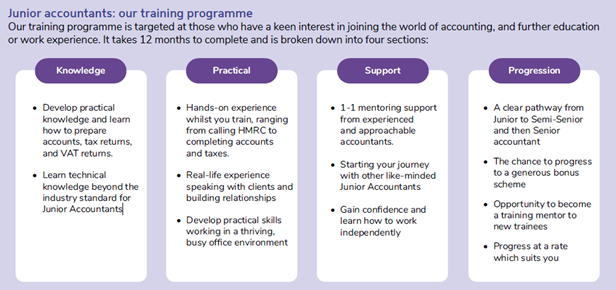
Last updated: 20 May 2024 09:00 Posted in: AIA
Lee Murphy, Managing Director at The Accountancy Partnership, examines the issue of skills shortages and how we can attract more people into the world of accountancy.
The Office of National Statistics has reported that more than a fifth of adults in the UK, aged between 16 and 64, are not looking for work. That’s 9.2 million people and 700,000 higher than before the Covid-19 pandemic. Some commentators have blamed a lazy generation and reliance on government support during lockdown, and it should be considered millions want a better job market.
There are serious skills shortages in sectors like hospitality, medicine, construction and IT, with each sector dealing with a storm of economic challenges. In the US, 300,000 accountants and auditors left their jobs in 2022, a 17% decline in industry headcount.
This ‘great retirement’ shows no sign of abating, while the flow of young talent into the profession continues to dwindle and there is a similar story in the UK. Professional bodies have warned of a dramatic shortage of skilled individuals in accountancy and audit.
How can we close this talent gap before it becomes a chasm?


Attracting young talent
Why would vibrant young talent shun a career in accounting? Accountancy has an image problem. The traditional image of the sector – with its emphasis on routine tasks and number-crunching – doesn’t resonate with younger generations eager for dynamic and fast-moving work environments.
Millennials and Gen Z increasingly prioritise a sense of purpose in their work, as well as the opportunity to contribute positively to businesses, society and the environment. They are seeking meaningful work that aligns with their values and offers growth opportunities. This means that the accountancy profession’s traditional ‘selling points’ of a comfortable income and job security seem like a burden.
Young people are also prioritising a better work-life balance. They are understandably concerned about a culture of overwork. Ironically, these issues will only worsen if more young people don’t enter the profession.
Changing the narrative
How can UK accounting firms become beacons of opportunity for young professionals? As industry insiders, it’s up to us to shift the narrative and make young people aware of the rewarding opportunities that a career in accountancy offers. School and university outreach, internships and graduate schemes, and positive PR and informative content marketing are great ways to do this.
We need to frame accountancy as a force for good. This means demonstrating how accountants help to drive tangible business value and highlighting transferrable skills like problem solving, analysis and communication.
But we also need to look inward at our industry. Young professionals are eager to learn and use cutting-edge tools, like AI and automation. This means that time spent on administrative tasks can be delegated to technology, meaning that more time can be spent working with businesses on strategy and creativity.
We can also do more to show the multi-faceted nature of a career in accounting, and the varied opportunities that are available. From auditing to forensic financial investigators, working in industry to joining a practice – the stereotype of accounting is well overdue a facelift. After all, accountants are at the heart of pretty much everything – even the Oscars relies on a well-known accounting firm to prepare its list of the evening’s winners.
Retaining talent
What about encouraging experienced accountants to stay in their jobs for longer? We must recognise the enormous value that older employees bring to the workplace – not just in career years but in life experience too.
At The Accountancy Partnership, we have veterans who worked the armed forces for 20 years before switching to a career in accountancy. Our Junior Accountant Programme is a gateway for many local people to seamlessly transition into the sector if they wish to and we encourage everybody, at any age, from all walks of life to apply. Like younger staff, older accountants should be offered tailored professional development opportunities and the chance to explore new areas, such as advancing digital technology.
Employers should also ensure that seasoned professionals aren’t lost to early retirement or job dissatisfaction. One way to do this is by pairing senior accountants with younger tech-savvy colleagues. This formal and informal mentoring creates a sense of purpose for older employees and accelerates learning for the next generation.
A call to arms
The future of accounting depends on our ability to close the generational gap. By rebranding the profession, harnessing technology and cultivating inclusive and supportive workplaces, UK accounting firms can become destinations of choice for the brightest young minds.
The accounting sector has a critical part to play in the world. Let’s ensure that we have the dynamic workforce needed to rise to the challenge.
Author Biography
Entrepreneur Lee Murphy started TAP in 2006 after becoming frustrated with accountants whose services were outdated, laborious and expensive. His qualified accountants work on the cutting edge of digital accountancy.
"The future of accounting depends on our ability to close the generational gap. By rebranding the profession, harnessing technology and cultivating inclusive and supportive workplaces, UK accounting firms can become destinations of choice for the brightest young minds."
Lee Murphy, Managing Director at The Accountancy Partnership